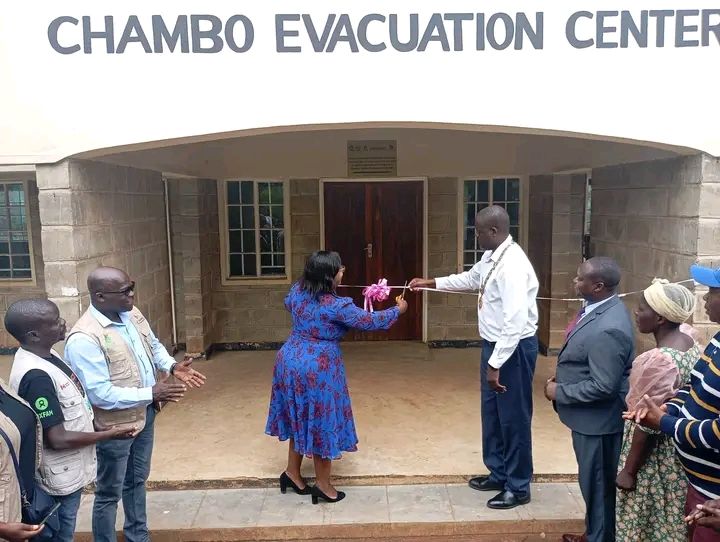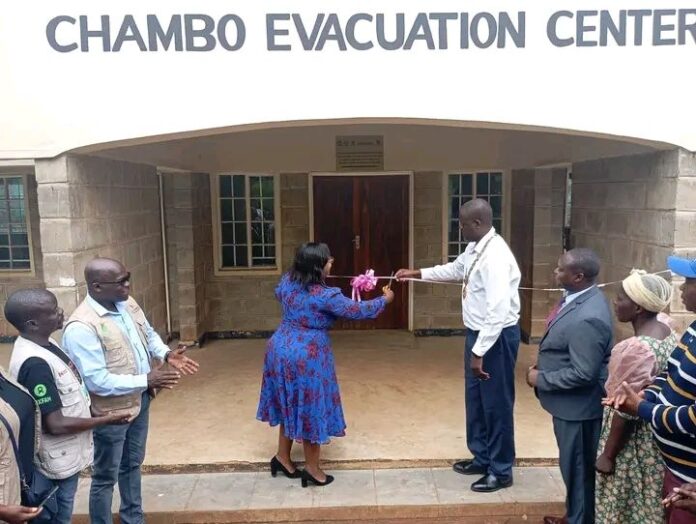By Burnett Munthali
Oxfam has emphasized the urgent need for more support towards urban resilience initiatives, as cities around the world, including those in Southern Africa, continue to experience increasing vulnerability due to the impacts of climate change.
According to Oxfam in Malawi’s Country Director, Lingalireni Mihowa, cities are on the frontline of the climate crisis, and targeted interventions are critical to protect urban populations and infrastructure.
Mihowa made these remarks on Wednesday during a significant handover ceremony held in Zomba City, marking the conclusion of several urban development initiatives under the Building Urban Resilience in South Eastern Africa project.

The project, which began in 2020, has been implemented not only in Malawi but also in countries like Mozambique, Comoros, and Madagascar, each facing similar environmental threats and urbanization challenges.
Mihowa expressed confidence that the project will play a pivotal role in enhancing Zomba City’s ability to withstand climate shocks and build long-term sustainability.
She highlighted the importance of strengthening city systems to manage both sudden and slow-onset climate impacts, such as flooding, deforestation, and infrastructure degradation.
Among the tangible outcomes of the project in Zomba are the construction and implementation of various facilities designed to enhance environmental protection and disaster preparedness.
These include the establishment of a solid waste management facility at Chinamwali Market, which is expected to improve sanitation and reduce pollution in one of the city’s busiest commercial areas.
In addition, drainage channels have been constructed at Masongola to manage surface runoff and prevent the recurring problem of flash floods during the rainy season.
An automated weather station has also been installed at the University of Malawi (UNIMA), a critical tool for real-time climate monitoring, early warning systems, and academic research.
Further to this, gabions have been installed at Namalaka Bridge, aimed at preventing soil erosion and reinforcing the stability of the infrastructure in a flood-prone zone.
The construction of an evacuation centre at Chambo stands out as a key component of the project, providing a safe refuge for residents during extreme weather events and other natural disasters.
These interventions, according to Mihowa, are not only about physical infrastructure but are also intended to build a culture of preparedness, awareness, and climate-sensitive planning among city stakeholders.
Zomba City Council Mayor, Councillor Christopher Jana, welcomed the support from Oxfam, describing it as timely and essential in a rapidly urbanizing environment.
He acknowledged that cities like Zomba are facing immense challenges due to rapid population growth, deforestation, unmanaged waste, and climate variability, which require innovative and sustained responses.
Mayor Jana emphasized that the city’s exposure to climate-related risks makes it imperative to invest in preventive infrastructure and adaptive urban planning.
He noted that the partnership with Oxfam has set an example of what can be achieved when local government, civil society, and international organizations collaborate towards a shared vision for resilience.
He also pointed out that such initiatives serve as a wake-up call for more investment into climate-resilient infrastructure across Malawi’s urban centers, not just in Zomba.
As cities continue to grow, the Mayor stressed that urban development must be aligned with sustainability and resilience objectives to safeguard future generations.
The event concluded with appreciation from both local authorities and community representatives, who acknowledged the long-term impact these projects will have on lives and livelihoods.
Oxfam’s call for greater attention to city-level resilience echoed far beyond Zomba, reminding national and regional stakeholders that climate adaptation must be inclusive, localized, and adequately funded to be effective.
In the face of a changing climate, the story of Zomba City is one of hope, proactive planning, and a commitment to building a safer, more sustainable urban future.



